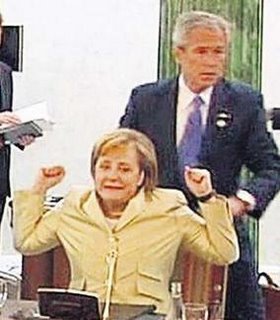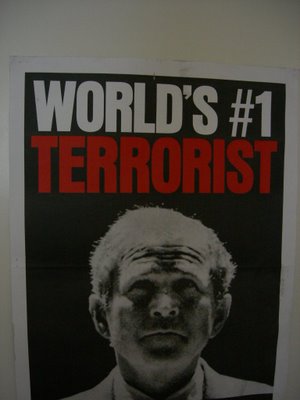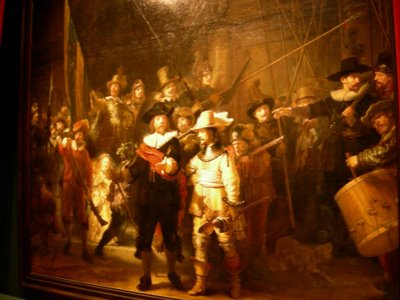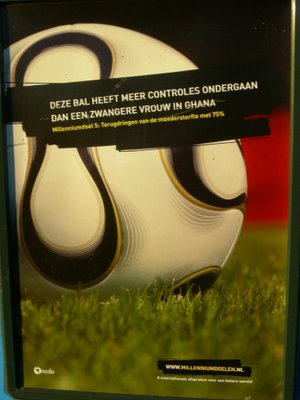Pedophilia
I’ve already received dozens of extra hits today because of the news about the PNVD
Partij voor Naastenliefde, Vrijheid en Diversiteit (Party for Brotherly love, Freedom and Diversity). Because of the ‘demand’, I’ve decided to publish something I wrote sometime ago but was hesitant to publish. It’s supposed to clarify misconceptions about paedophilia.
--
Like I mentioned before, pedophilia has gotten a bad name because people immediately associate it with ‘sex with children’. When talking about a socially sensitive issue such as pedophilia a clear conception of what it is, and what it means is necessary. Here is a break down of the idea behind modern day (mis)conception(s) of pedophilia by Dr Frans E.J. Gieles. But like many attempts to define a term or concept, we need to be aware of whether the definition is in actual fact an attempt at neatrally framing what it is/is not—the true sense of what it means to define—or tainted with bias—in which case would instead become a moral lecture.
n Pedophilia—a feeling of attraction toward children
n Pedosexuality—an act of sexual contact with children
There’s no need to demonise people because of their sexuality. We need to differentiate between those who have certain feelings, and those who—in the realisation and satisfaction of those feelings—commit certain acts that are contrary to current norms and laws.
Not many people with pedophilic feelings will commit sexual deeds. The overwhelming majority does not do this, and do not want to do this at all. Yes, there is desire, but one in fact would rather not realise it. Be wary that your opinions and details are solely based on convicted people or people in clinics: that gives a very typical and prejudiced picture. Much of the literature is about this, and is therefore prejudiced.
When do pedophilia feelings start appearing exactly?
The crossroad is puberty, the physical and mental ripening. In that period one can be charmed by the childishness [child nature] still remaining, and regret that this is going to disappear […]
Does pedophilia have anything to do with sexuality, or sexual orientation?
One can be more charmed by boys, another by girls. The relationship is, in my experience, about two to one. For others it does not matter that much: it is about their child nature. Another falls in fact for the awakening masculinity or femininity in the child, therefore for the awakening adolescence. This is often the case, but may not be referred to as ‘pedophilia’ :cit is in fact hetero- or homophilia. And take note that a legal age limit is not yet a diagnostic age limit. That [age limit] lies lower.
[...]
Perhaps some people will react with shock to a revaltion by someone that s/he is a pedophile. But why the shock? Why the disbelief, or even anger to the disclosure of someone’s pedophiliac tendencies? In the current climate of ‘treatment’, people who are otherwise normal suddenly become severely disturbed when they reveal their innermost thoughts and feelings. One reason is that any kind of research—regardless of its quality or its contribution into understanding pedophilia as a social and very human phenomenon is immediately labeled as an attempt to ‘normalise’, or even advocate pedophilia, thereby opening it to attack and scrutiny. A worrying trend, as Dr Gieles points out, is that people can end up in detention or forced into ‘treatment’ not because of what they have done, but what they may do in the future. Dr Gieles explains very succinctly why society takes such a skewed attitude toward pedophilia:
There is an process of scapegoating and demonisation in full steam. Every form of suspicion, rumour, alarm, police reporting or complaint is, in cases of acquittal as well, answered with threats. In practice one must move house and loose his job. This [phenomenon] is actively being used: employers of people who published these opinions were informed, who went on to dismiss [the employees]. Note: not deeds, just the idea [is sufficient in over-reaction]
UPDATE: 17 July 2006
An example of how bias against paedophiles in particular, and paedophilia in general, can cost jobs: The secretary of the PNVD, who was studying orthopedagogy—a study on the learning and behavioural problems of children—was removed from Radboud University of Nijmegen because of his involvement with the party.
And even more hypocritical is the following attitude:
Actually I also may not have a say on this topic: if you yourself have pedophilia feelings, you are just allowed to say that the weather is nice or cold, but really not much more. Someone with pedophilia feelings can of course not be a scholar: he is of course opinionated. Opponents [of pedophilia] are of course not so. Pregnant women may say nothing about pregnancy, is it not; and married men nothing about marriage: opinionated. Reverends therefore [may] say nothing about God, women nothing about feminism, educators nothing about education, journalists nothing about journalism, researchers nothing about conducting research: all [of them are] opinionated. Is this not the case? Indeed, this cannot be the case—only for ‘pedophiles’ is this of course the case.
What can you do to prevent further misunderstanding and promote greater, more critical and understanding of an issue such as pedophilia?
n Define correctly and inspect whether you have made a definition or a sermon
n Differentiate between feeling and deed
n Differentiate between moral and science
n Look critically to theory and practices
n Look also critically, but with an open mind, to what [was just presented]
---
Here are two opposing opinions on paedophilia, left by people who commented on my blog:
(A)
A friend of mine is a paedophile.
He's not creepy or anything, he just seems like a normal guy, […] He's never raped or abused anyone, and he's a pretty nice bloke.
[…]
He got rid of the prejudices I had ( fat bald church priests, or wrinkly men with large glasses on) and pretty much convinced me that paedophelia is indeed a sexual orientation.
Most straight relationships are inequal. The men are almost always stronger than the women. 1 in 4 women will get sexually abused in their lifetime, and you hear far too often of girlfriends losing their virginity to please their partner.
The point I'm trying to make is that coercion can happen at all stages of life, no matter who you are.
Paedophiles coercing young girls is probably about as common as men coercing women to have sex with them. Having sex with a drunk person isn't illegal either! Another point to consider is that younger people are free from social pressures and expectation.
The word frigid often gets thrown around young adults, doesn't it?
As long as paedophiles don't do anything against their 'partner's will, I see personally see nothing wrong with it.
(B)
[…]
Even if we assume that children are sexually "aware" as I have seen some pedophiles put it, it is taking immoral advantage of their intellectual and emotional immaturity to either initiate or accept sexual contact with them. Age of consent laws may need some revising so as to prevent ridiculous cases where a thirteen year old is charged with pedophilia for having sexual relations with their 12 year old partner, but they must remain in place to prevent the significantly more mature from abusing their positions of authority and trust to exploit children.
UPDATE: 25 July 2006
























